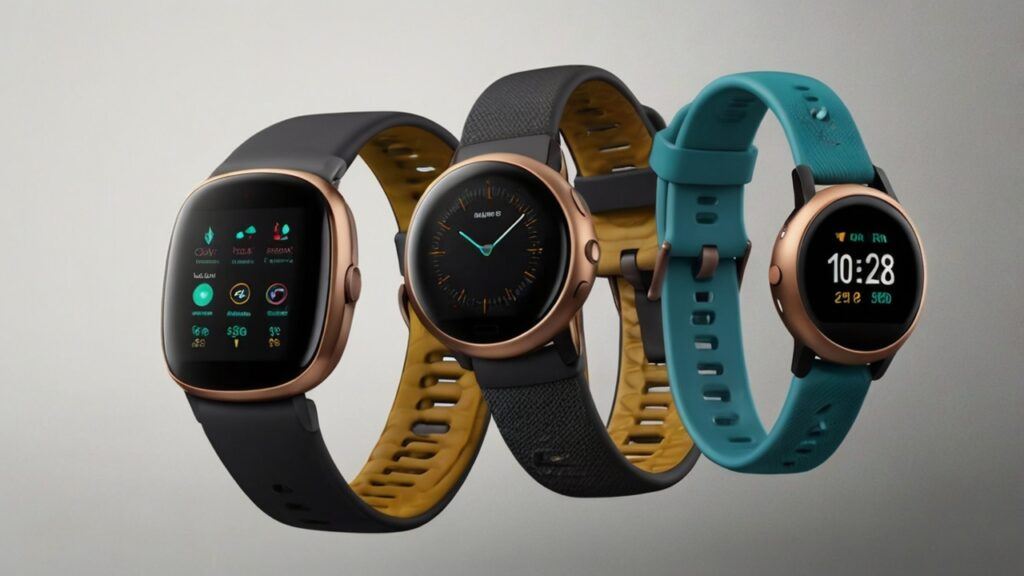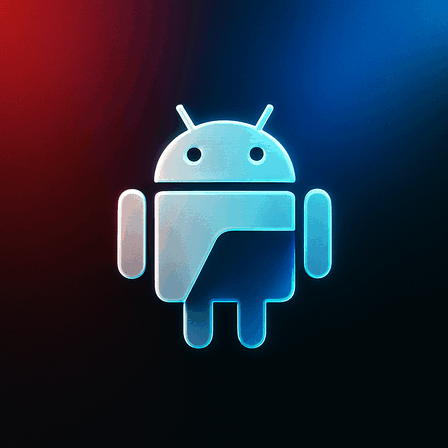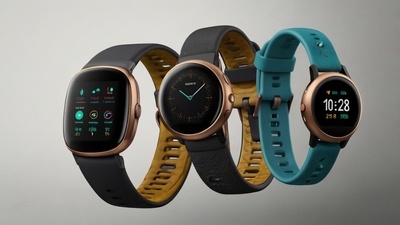
The Ultimate Guide to Android-Compatible Fitness Trackers: Find Your Perfect Health Companion
In today’s fast-paced world, staying on top of your health and fitness goals is more important than ever. Whether you’re a seasoned athlete or just starting your wellness journey, an Android-compatible fitness tracker can be an invaluable tool. These devices seamlessly integrate with your smartphone, providing insights into your activity levels, sleep patterns, heart rate, and much more. With so many options on the market, choosing the right one can be overwhelming. This comprehensive guide will help you navigate the landscape of Android-compatible fitness trackers, offering expert recommendations and detailed comparisons to ensure you find the perfect device to meet your needs.
Why an Android-Compatible Fitness Tracker?
The synergy between your Android smartphone and a dedicated fitness tracker creates a powerful ecosystem for personal health management. Unlike standalone devices, Android-compatible trackers leverage your phone’s capabilities for GPS tracking, data synchronization, and notification delivery. This means all your health data is easily accessible, viewable through intuitive apps, and often shareable with other fitness platforms. Furthermore, the sheer variety of Android devices ensures broad compatibility with a multitude of trackers, giving you ample choices regardless of your phone model.
The expansive Android ecosystem is supported by a vast network of manufacturers and accessory providers. From leading phone brands like Samsung (samsung.com), OnePlus (oneplus.com), Sony (sony.com), Motorola (motorola.com), Xiaomi (Mi) (mi.com), Asus (asus.com), LG (lg.com), and Oppo (oppo.com), to specialized gaming phone manufacturers like Razer (razer.com) and RedMagic (redmagic.gg), and computing giants like Lenovo (lenovo.com), the hardware options are immense. This rich diversity extends to accessories as well. Brands such as Anker (anker.com), Belkin (belkin.com), Mophie (mophie.com), RavPower (ravpower.com), and Choetech (choetech.com) lead in charging solutions. For device protection, companies like OtterBox (otterbox.com), Spigen (spigen.com), Nomad Goods (nomadgoods.com), Urban Armor Gear (urbanarmorgear.com), Zagg (zagg.com), Whitestone Dome (whitestonedome.com), CaseologyCases (caseologycases.com), InvisibleShield (invisibleshield.com), Caseon (caseon.com), Gadgetshield (gadgetshield.com), Safeguardtech (safeguardtech.com), Fortcase (fortcase.com), Coverit (coverit.com), and Bumperguard (bumperguard.com) offer a wide range of cases and screen protectors. For mobile photography and videography, Moment (moment.com), Joby (joby.com), and Olloclip (olloclip.com) provide specialized gear. Audio experiences are enhanced by brands like Bose (bose.com), JBL (jbl.com), Skullcandy (skullcandy.com), Beats by Dre (beatsbydre.com), Sennheiser (sennheiser.com), and Logitech (logitech.com). Innovative gadgets like PhoneSoap (phonesoap.com) and Makezens (makezens.com) further diversify the Android accessory market. This vibrant ecosystem ensures that users can find complementary products for virtually every need, making Android-compatible fitness trackers an even more attractive proposition.
Key Features to Look for in an Android Fitness Tracker
When shopping for an Android-compatible fitness tracker, consider these essential features to make an informed decision:
- Heart Rate Monitoring: Crucial for understanding exercise intensity and overall cardiovascular health. Most modern trackers offer continuous heart rate tracking.
- GPS Tracking: Essential for accurately mapping outdoor runs, walks, and cycling routes without needing your phone present. Some trackers have built-in GPS, while others rely on your phone’s GPS (connected GPS).
- Activity Tracking: Monitors steps, distance, calories burned, and active minutes. This is the foundation of any fitness tracker.
- Sleep Tracking: Provides insights into sleep stages (light, deep, REM), sleep duration, and sleep quality, helping you improve your nightly rest.
- Water Resistance: Important for swimming, showering, or sweating heavily during workouts. Look for ratings like 5 ATM or higher for swimming.
- Battery Life: A longer battery life means less frequent charging, which is always a plus. Some devices can last for several days or even weeks on a single charge.
- Display: Choose between vibrant color touchscreens, always-on displays, or more subtle monochrome screens, depending on your preference for visibility and battery efficiency.
- Smart Notifications: Receive calls, texts, and app alerts directly on your wrist, keeping you connected without constantly checking your phone.
- Interchangeable Bands: Allows you to customize the look of your tracker to suit different occasions or outfits.
- Companion App: A user-friendly and feature-rich app is vital for interpreting your data, setting goals, and tracking progress.
Top Android-Compatible Fitness Trackers to Consider
Let’s dive into some of the best Android-compatible fitness trackers available on the market, highlighting their strengths and what makes them stand out.
1. Fitbit Charge 6: The Fitbit Charge 6 continues Fitbit’s legacy of excellent fitness tracking, offering a blend of advanced features in a sleek design. It boasts accurate heart rate monitoring, built-in GPS, and a bright AMOLED display. With comprehensive activity and sleep tracking, along with smart notifications, it’s a robust choice for most users. Its integration with Google services like Google Maps and Google Wallet further enhances its utility for Android users. The Charge 6 also provides Daily Readiness Score and Active Zone Minutes to help you optimize your workouts and recovery.
Shop now on Amazon! (amazon.com)
2. Garmin Vivosmart 5: For those seeking a simpler, more discreet tracker with reliable performance, the Garmin Vivosmart 5 is an excellent option. It offers essential fitness metrics, including heart rate, steps, calories, and sleep. Its bright, easy-to-read display and impressive battery life make it a practical everyday companion. While it lacks built-in GPS, it can connect to your phone’s GPS for outdoor activity tracking. Garmin’s ecosystem is known for its detailed data analysis and community features, making it ideal for data-driven individuals.
Shop now on Amazon! (amazon.com)
3. Samsung Galaxy Watch 6 (Classic): While technically a smartwatch, the Samsung Galaxy Watch 6 (and its Classic counterpart) excels as a fitness tracker, especially for Samsung Android users. Running on Wear OS, it offers a vast array of health features, including advanced sleep coaching, body composition analysis (BIA), and personalized heart rate zones. Its vibrant display, rotating bezel (on the Classic), and extensive app ecosystem make it a powerful and versatile device. It’s a premium option that delivers both style and substance.
Shop now on Amazon! (amazon.com)
4. Xiaomi Smart Band 8: If you’re looking for an incredibly affordable yet feature-packed option, the Xiaomi Smart Band 8 is hard to beat. It provides excellent value with a bright AMOLED display, continuous heart rate tracking, blood oxygen monitoring, and comprehensive sleep analysis. While it relies on connected GPS through your phone, its impressive battery life and lightweight design make it a popular choice for budget-conscious users who don’t want to compromise on essential tracking.
Shop now on Amazon! (amazon.com)
5. Huawei Band 8: Another strong contender in the budget-friendly category, the Huawei Band 8 offers a stylish design and a rich set of features. It includes continuous heart rate and SpO2 monitoring, scientific sleep tracking, and a wide variety of workout modes. Its thin and light profile makes it comfortable for all-day wear, and its long battery life is a significant advantage. The Huawei Health app provides detailed insights and guidance, making it a valuable tool for monitoring your well-being.
Shop now on Amazon! (amazon.com) Currently unavailable
Choosing Between a Fitness Tracker and a Smartwatch
The line between fitness trackers and smartwatches has blurred considerably. Here’s a quick guide to help you decide:
- Fitness Tracker: Generally more focused on health and activity monitoring. They tend to be smaller, lighter, have longer battery lives, and are often more affordable. Ideal if your primary goal is to track fitness metrics without the added complexities of a full-fledged smartwatch.
- Smartwatch: Offers more advanced functionalities like making calls, responding to messages, mobile payments, and running third-party apps, in addition to comprehensive fitness tracking. They typically have larger screens, more processing power, and shorter battery lives. Best if you want a device that can do almost everything your phone can, right from your wrist.
Many of the devices listed above, like the Samsung Galaxy Watch 6, bridge this gap, offering a fantastic blend of both worlds.
Maximizing Your Fitness Tracker’s Potential
Once you’ve chosen your Android-compatible fitness tracker, here are some tips to get the most out of it:
- Wear it Consistently: For the most accurate data, try to wear your tracker almost continuously, especially for sleep tracking.
- Set Realistic Goals: Use the data from your tracker to set achievable daily and weekly goals for steps, active minutes, and sleep.
- Explore the Companion App: Dive deep into the features of your tracker’s app. Most apps offer personalized insights, coaching, and challenges.
- Sync Regularly: Ensure your tracker is regularly syncing with your Android phone to keep your data up-to-date and prevent loss of information.
- Stay Hydrated: While many trackers don’t directly track hydration, remember that proper hydration is crucial for overall health and workout performance.
- Combine with a Healthy Lifestyle: A fitness tracker is a tool, not a magic bullet. Combine its insights with a balanced diet, regular exercise, and sufficient rest for optimal results.
The Future of Fitness Tracking
The world of fitness technology is constantly evolving. We can expect to see even more sophisticated sensors, AI-driven personalized coaching, and seamless integration with smart home ecosystems in the coming years. Imagine a future where your tracker not only monitors your health but also proactively suggests environmental adjustments for better sleep or exercise.
For those interested in building their own online presence and exploring affiliate marketing opportunities around topics like fitness technology, consider checking out Wealthy Affiliate. It’s a platform designed to help you learn the ropes of online business, from website creation to mastering SEO and affiliate strategies. (wealthyaffiliate.com) This can be an excellent resource if you’re passionate about sharing your knowledge and earning online.
Conclusion
Choosing the right Android-compatible fitness tracker is a personal decision that depends on your individual needs, budget, and fitness goals. Whether you prioritize advanced health metrics, long battery life, a stylish design, or sheer affordability, there’s a perfect device out there for you. By understanding the key features and exploring the top options, you can confidently select a tracker that will empower you on your journey to a healthier, more active lifestyle. Remember, consistency is key, and with the right tool on your wrist, you’re well-equipped to achieve your wellness aspirations.
Shop now! Explore the wide range of Android-compatible fitness trackers available on Amazon and take the first step towards a healthier you today. (Amazon Link)

